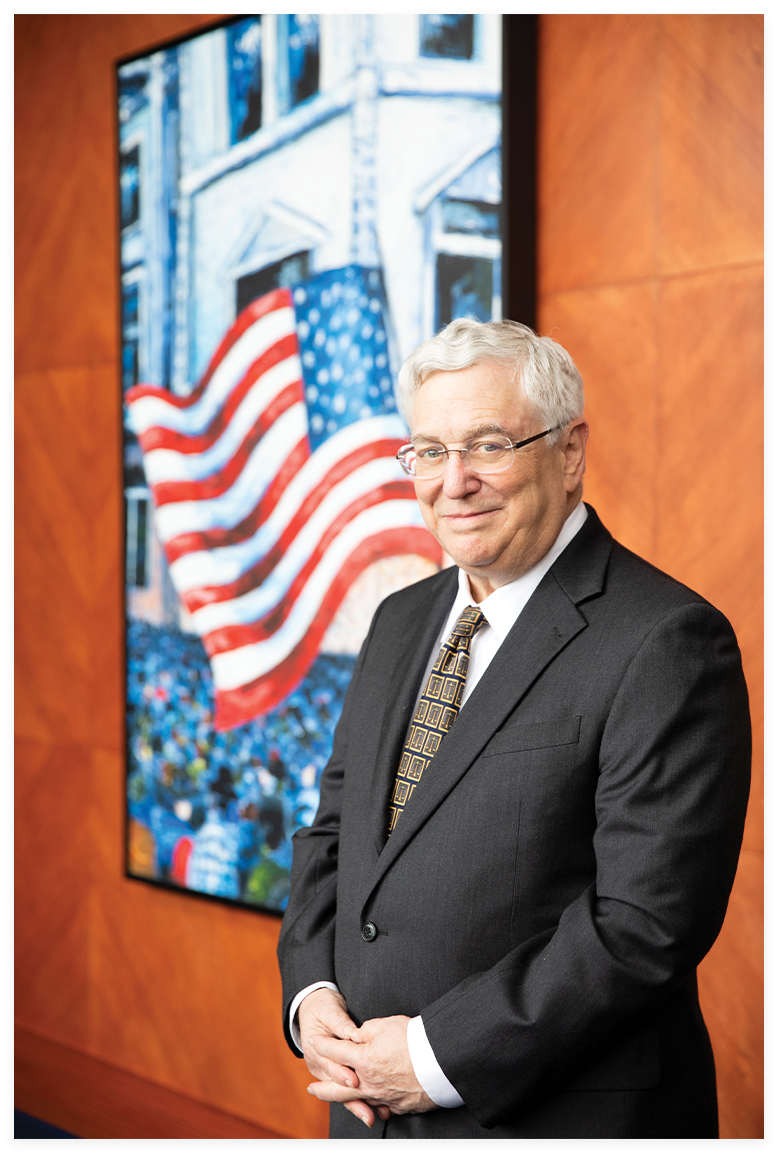
Gergel pictured in front of the painting Breath of Freedom by his friend Jonathan Green, depicting crowds gathered outside the courthouse for the Briggs v. Elliott decision.
Written By Stephanie Hunt
Portrait By Aleece Sophia
Consider it a testament to his wisdom that the Honorable Richard Gergel demurs when asked how he defines the word. He shrugs, ponders for a moment, then offers, “Well, experience is important. To me, wisdom has to do with being diligent and spending the time to really think things through.”
After 13 years as a judge for the US District Court of South Carolina, Gergel has had plenty of experience, including high-profile trials like that of Dylann Roof, the federal charges against Alex Murdaugh, and the congressional redistricting case currently before the US Supreme Court. But to the 69-year-old Columbia native, the spotlight is irrelevant. “I treat every case the same—the same rules, the same preparation, the same reasoning,” he says. And regarding those hours of preparation, Gergel is legendary among his peers. “Let’s just say, he’s always the last to leave the office,” says his law clerk, Deon McCray.
To appreciate his keen intellect and raconteur’s suavity, simply read Gergel’s New York Times best-selling book, Unexampled Courage: The Blinding of Sgt. Isaac Woodard and the Awakening of President Harry S. Truman and Judge J. Waties Waring (Sarah Crichton Books, 2019), in which he recounts a little-known story integral to our nation’s long struggle with racial justice. Indeed, Gergel is humbled to preside over the same courtroom where Judge Waring issued key civil rights rulings. “I’ve always told my students that a law license is a license to do good. I’m just trying to do my part.”
To the former intellectual property and personal injury attorney, the judiciary is about public service, not prestige. To wit, he volunteered to take on complex multi-district litigations, including the current PFAS, or Forever Chemical, litigation entailing some 4,000 cases and 17,000 plaintiffs, over and above his regular docket. With stamina and dedication matched only by his wit and, yes, wisdom, Gergel approaches each case with an open mind, because, he says, “I understand the consequences of what I’m doing.” His mantra as he enters the courtroom: “Let’s go do justice.”